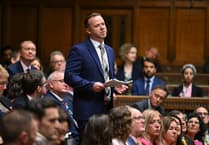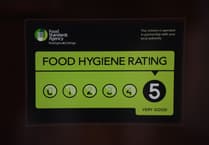Councillors across Cornwall have overwhelmingly expressed their concern following the opening of a public consultation regarding the potential Cornwall Devolution Deal.
Cornwall Council has recently asked the public for their thoughts on a potential devolution deal which would see more power surrounding the county given to county councillors.
In 2021, the government announced that new devolution deals, now known as “County Deals”, would be on the table in future as part of its Levelling Up agenda.
In February this year, the government released the “Levelling Up the United Kingdom” white paper, which set out their plans to reduce regional inequality by 2030 through 12 mission commitments.
These 12 missions include, raising “pay, employment and productivity in every area of the UK”, making sure “local public transport connectivity across the country will be significantly closer to the standards of London”, “the gap in Healthy Life Expectancy (HLE) between local areas where it is highest and lowest will have narrowed” and “renters will have a secure path to ownership with the number of first-time buyers increasing in all areas” as well as improvements in policing, broadband speeds, and education.
However, one of the most important aspects for our area is the final of the 12 missions, which states “By 2030, every part of England that wants one will have a devolution deal with powers at or approaching the highest level of devolution and a simplified, long-term funding settlement.”
With regards to this, Cornwall Council have opened a public consultation surrounding the proposed Cornwall Devolution Deal. But what could this mean for residents of Cornwall?
Cornwall Council have laid out what opportunities this could provide should devolution take place.
A spokesperson for Cornwall Council explained the ways in which this deal could make a difference within the Duchy, saying: “It could make a big difference to Cornwall, enabling the council to: target much-needed funding and resources to our own priorities; attract and keep new and key businesses and sectors; invest in the skills we know we need; unlock housing and employment sites; increase our contribution to the UK economy and raise our profile nationally, enabling our voice to be heard by government and help shape future policies.
“Cornwall could benefit from millions of pounds of additional investment each year plus more certainty and control over longer term funding through a 30-year multi-million pound Cornwall Investment Fund, with an agreed annual allocation, multi-year transport funding; control of local development on brownfield sites; and design and delivery of employment projects.”
However, despite the presentation of these potential advantages, councillors from across our area have overwhelmingly expressed their concerns for the deal.
Many criticisms of the deal surround the suggested monetary benefits of devolution and the £360-million in funding across 30 years.
Edwina Hannaford, councillor for West Looe, believes despite this initially appealing amount, this doesn’t begin to cover what the county received via EU funding.
“I am not convinced this is a big deal for Cornwall,” explained Cllr Hannaford. “It equates to just £12-million per annum. When David Cameron and Cornish MPs promised we would have the same replacement funding that we would have received from the EU, EU funding was £100-million per annum. So far, we have only received £43-million since leaving the EU.
“With the likelihood of a change in government will the money be guaranteed? What will the money be worth in 30 years’ time if it’s still there?”
Cllr Hannaford isn’t the only councillor concerned about the amount of money on the table.
Cllr Adrian Parsons, for Altarnun and Stoke Climsland, said: “One would have thought the opportunity of greater powers for Cornwall through a new Devolution Deal between Cornwall Council and the government, with an extra £360-million investment fund over 30 years to deliver on the regions priorities, would be what most would want to enable us to take greater control of our own destiny. As often appears to be the case with these deals, things are not always as straight forward as they first appear and often the devil is in the detail.”
For Cllr Parsons, this detail lies with the sum of £12-million.
“I don’t think the additional £12-million a year goes anywhere near far enough to help deliver what’s required and make up for what has been lost. For the Duchy to really prosper we need real investment, not just to generate more wealth but to also keep it here. For too long much of the money made in the Duchy is sucked out and spent elsewhere. We need to create worthwhile jobs that pay people a decent all year round income,” he explained.
John Conway, the Conservative Councillor for Launceston South, also slammed the deal as “bad for Cornwall and democracy”, despite the plans being championed by his party’s leadership.
He said: “I believe the deal to be bad for Cornwall and bad for democracy.
“The bribe, which is small in absolute terms and not index linked, is for mainly capital projects dictated by central government. It cannot be spent where we most need it (such as adult social care).
“The deal also imposes a mayor on us. The mayor, once appointed, will give a very large level of power to that individual with minimal influence from elected councillors. The mayor cannot be removed from office, no matter how reviled they become, until the next scheduled election. Council officers will also have increased power.
“In Launceston we are miles from Truro and a mayor is likely to result in us getting even less investment, though taxes will still be paid.”
Cllr Dominic Fairman, for St Teath & Tintagel, is also concerned with the details of the funding.
He said: “The headline figure is £390-million for Cornwall. However, this is spread over 30 years and so would only actually add £12-million to our annual spending of over £1-billion – with none of it earmarked for our existing underfunded services.
“The funding would also be subject to a number of conditions such as being able to identify brown-field sites for housing – which is almost impossible in rural areas – which I fear could lead us to deliver less affordable homes for young people. I am also underwhelmed by the offer of £500,000 to introduce improvements such as ticketless travel on buses given the rate that bus services have been reduced or abandoned in North Cornwall. There is no new money for reintroducing these.”
Cornish language
He did, however welcome the commitments to supporting the Cornish language and the development of off-shore power, adding: “There are welcome commitments to supporting the Cornish language and developing floating off-shore wind turbines. However these are both areas to which the government is quite rightly already committed to, along with tightening up the legislation around second homes and holiday lets which is a national issue.
“What you will not find in the online consultation is a question about who should decide and whether there will be a referendum. There is a strong sense that both the leader and the chief executive of Cornwall Council would prefer for the decision to be made in the Council Chamber in order to use the current Conservative majority to maximum effect and to meet a tight timetable of electing the first Mayor in May 2024 – a full year ahead of the next local elections.”
Referendum
Calling for a referendum, he continued: “My preference would be for a referendum – ideally in May 2024 which would then allow for a change of governance at the next local elections in May 2025 – but only if the people of Cornwall support it. This is the approach I will support at the Full Council in February and if you agree you will need to express this in one of the “additional information” boxes in the questionnaire.”
For some however, issues are deeper than the sum of money, worries of where this money will be spent are concerning some.
Cllr Barry Jordan, for Tintagel and Boscastle, said: “I have not met anyone in my division who is in favour of the new deal.
“What is £12-million a year, what will it bring to us here in the far north of the county? During the EU era, 82% of all EU money spent in Cornwall went west of Truro and what is to say we wont miss out again unless the mayor is from this part of the county. There is a lot to think about and I am not sure now how I will vote, if asked.”
Many of these monetary concerns are closely followed by fears surrounding the instalment of a “Mayor for Cornwall”, something which many believe will unfairly benefit certain areas of the county.
Cllr Andrew Long, the Mebyon Cornwall Councillor for Callington, called for a Cornish Parliament instead of a Mayor, saying: “I believe the proposals would be the worst of both worlds for the people of Cornwall. The deal is short on any real devolution but instead talks about ‘will discuss’ and ‘will consider’. The £360-million is in fact over 30 years and could be removed by the government at any time. It effectively means £12-million a year. This should be given to Cornwall as a matter of right and not some mystic donation.
“The fact that this will be wrapped in the enforced mayor makes it even more indigestible. Cornwall does not need or, in my view, want a mayor. We need a Cornish Parliament with proper powers akin to Wales or Scotland, not a single person wielding power to create their own budget without any recourse to elected representatives.
“I will not be supporting this appalling proposal and will work tirelessly to oppose it. I urge people to make their views known during the survey period and also to their councillor.”
Councillor Nick Craker, the Conservative Councillor for Liskeard, said he approached the deal with an open mind, saying: “I am pleased that the government identified Cornwall as a pilot area for a new devolution deal. It’s a point of principle that generally speaking, decisions which are about Cornwall are better made in Cornwall. Cornwall is one of only a handful of other areas in the country to be having these discussions with the UK government.
“Like all deals, the devil is in the detail. There is probably not a lot of contention around more funding for Cornwall and more powers being devolved from Whitehall to County Hall. However, the elephant in the room seems to be the local government changes that the UK government are insisting on, i.e., a directly elected mayor for Cornwall.
“I have consistently, and continue to approach this whole package with an open mind. I am naturally sceptical of a directly elected mayor for a county like Cornwall. In areas like Manchester, the West Midlands and Tees Valley, mayors have worked well and clearly achieved a lot of good stuff – regardless of their political colours. However, what’s different about the proposal for Cornwall is, unlike Manchester, West Midlands and Tees, the mayor would also be responsible for running the council. The leader of the council is currently elected by me as a Cornwall Councillor and my 86 other councillor colleagues, a practice which is common in representative democracies like the UK; it’s MPs who vote for the Prime Minister, they are not directly elected by the public. Then again, is giving all voters in Cornwall a vote on who their mayor is, rather than 87 councillors such a bad thing? Much less influence and scrutiny potential from councillors is the trade-off for more direct democracy.
“I completely encourage the public and residents of Liskeard to have a good look at the whole deal, not just the ‘mayor bit’, respond to the consultation and let their local Cornwall councillor know what they think. I have to say I can count on one hand the number of people who have contacted me about the devolution deal. Get in touch before we have to start voting on this deal!”





Comments
This article has no comments yet. Be the first to leave a comment.